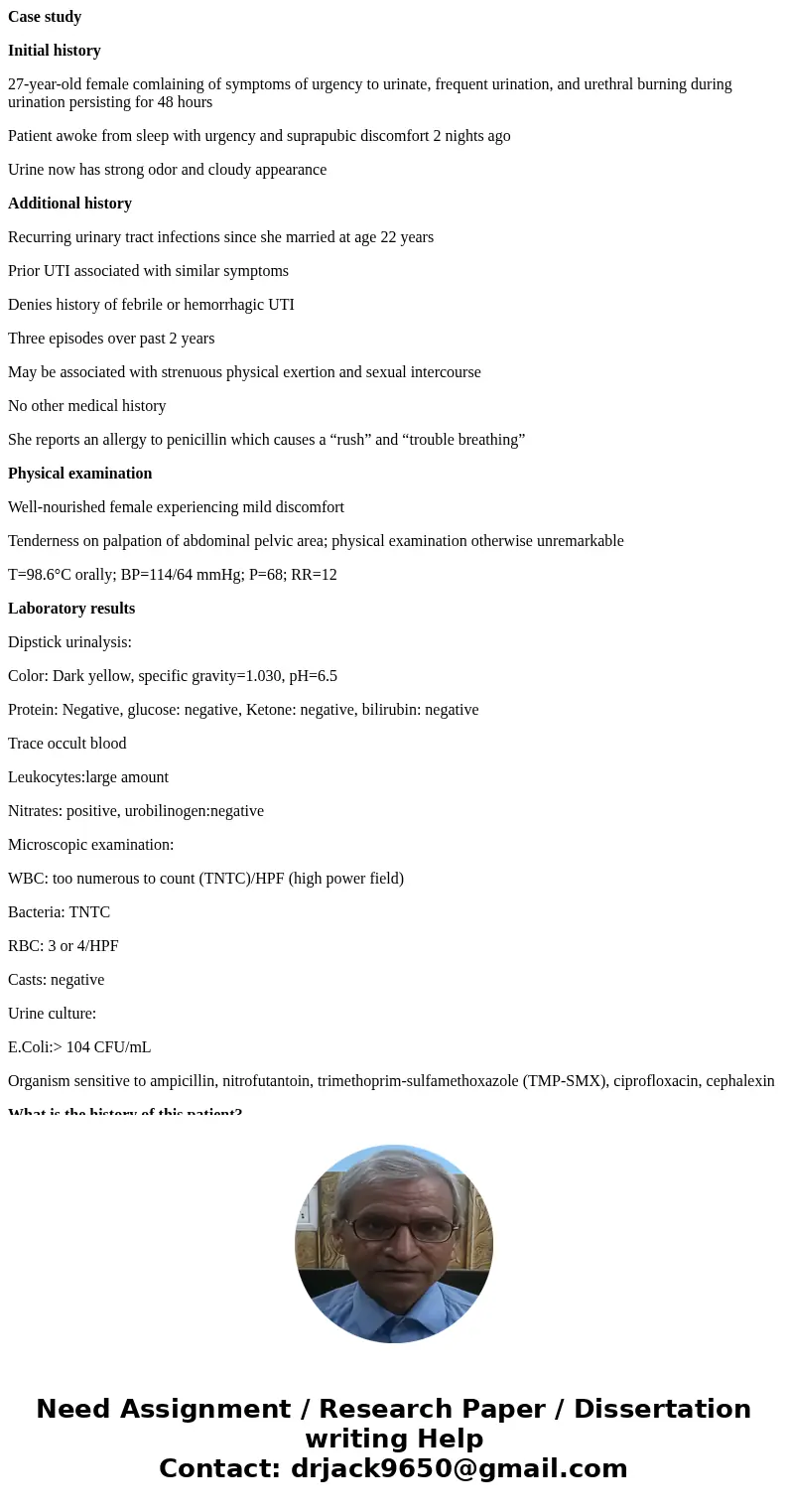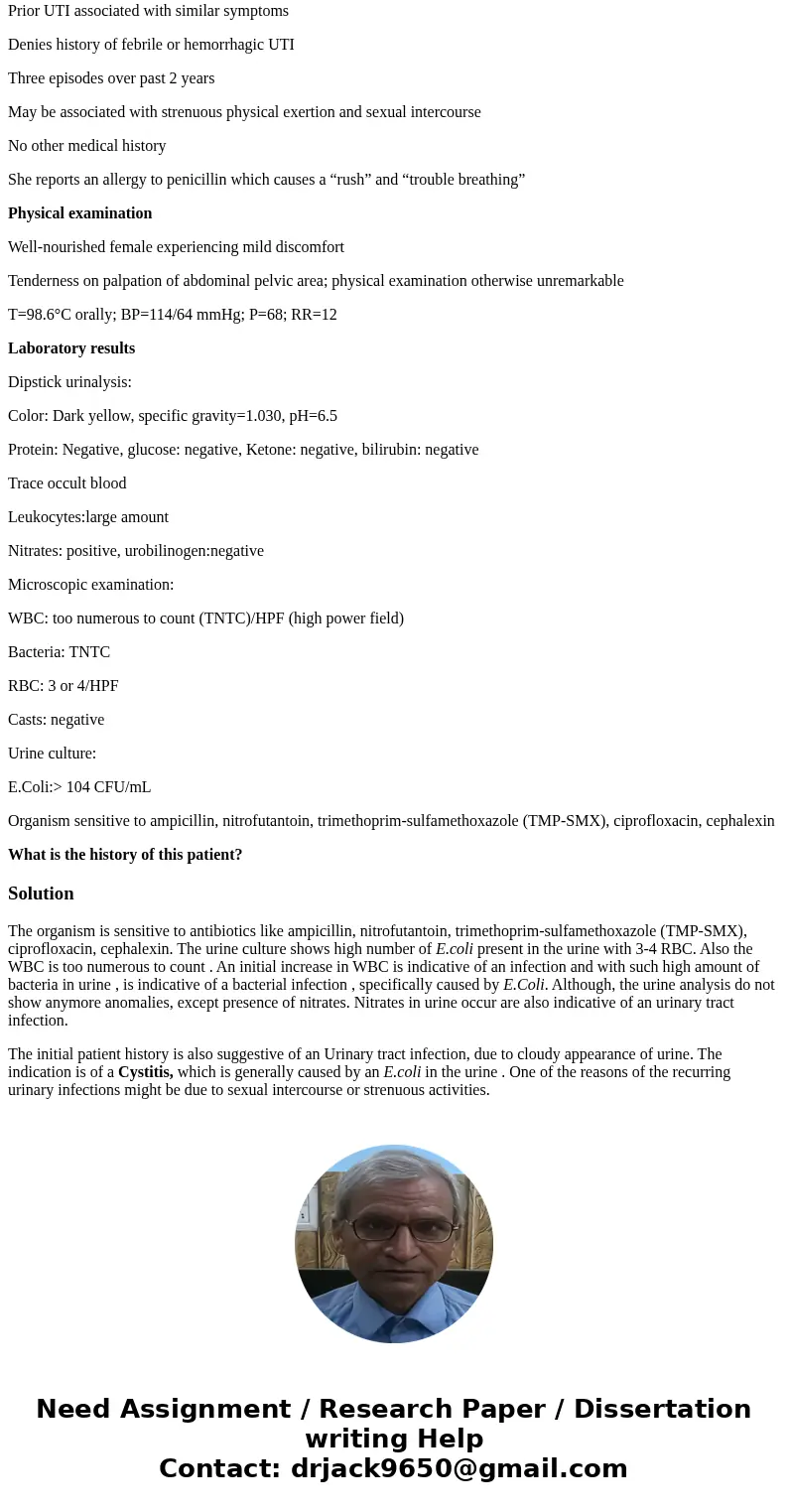Case study Initial history 27yearold female comlaining of sy
Case study
Initial history
27-year-old female comlaining of symptoms of urgency to urinate, frequent urination, and urethral burning during urination persisting for 48 hours
Patient awoke from sleep with urgency and suprapubic discomfort 2 nights ago
Urine now has strong odor and cloudy appearance
Additional history
Recurring urinary tract infections since she married at age 22 years
Prior UTI associated with similar symptoms
Denies history of febrile or hemorrhagic UTI
Three episodes over past 2 years
May be associated with strenuous physical exertion and sexual intercourse
No other medical history
She reports an allergy to penicillin which causes a “rush” and “trouble breathing”
Physical examination
Well-nourished female experiencing mild discomfort
Tenderness on palpation of abdominal pelvic area; physical examination otherwise unremarkable
T=98.6°C orally; BP=114/64 mmHg; P=68; RR=12
Laboratory results
Dipstick urinalysis:
Color: Dark yellow, specific gravity=1.030, pH=6.5
Protein: Negative, glucose: negative, Ketone: negative, bilirubin: negative
Trace occult blood
Leukocytes:large amount
Nitrates: positive, urobilinogen:negative
Microscopic examination:
WBC: too numerous to count (TNTC)/HPF (high power field)
Bacteria: TNTC
RBC: 3 or 4/HPF
Casts: negative
Urine culture:
E.Coli:> 104 CFU/mL
Organism sensitive to ampicillin, nitrofutantoin, trimethoprim-sulfamethoxazole (TMP-SMX), ciprofloxacin, cephalexin
What is the history of this patient?
Solution
The organism is sensitive to antibiotics like ampicillin, nitrofutantoin, trimethoprim-sulfamethoxazole (TMP-SMX), ciprofloxacin, cephalexin. The urine culture shows high number of E.coli present in the urine with 3-4 RBC. Also the WBC is too numerous to count . An initial increase in WBC is indicative of an infection and with such high amount of bacteria in urine , is indicative of a bacterial infection , specifically caused by E.Coli. Although, the urine analysis do not show anymore anomalies, except presence of nitrates. Nitrates in urine occur are also indicative of an urinary tract infection.
The initial patient history is also suggestive of an Urinary tract infection, due to cloudy appearance of urine. The indication is of a Cystitis, which is generally caused by an E.coli in the urine . One of the reasons of the recurring urinary infections might be due to sexual intercourse or strenuous activities.


 Homework Sourse
Homework Sourse